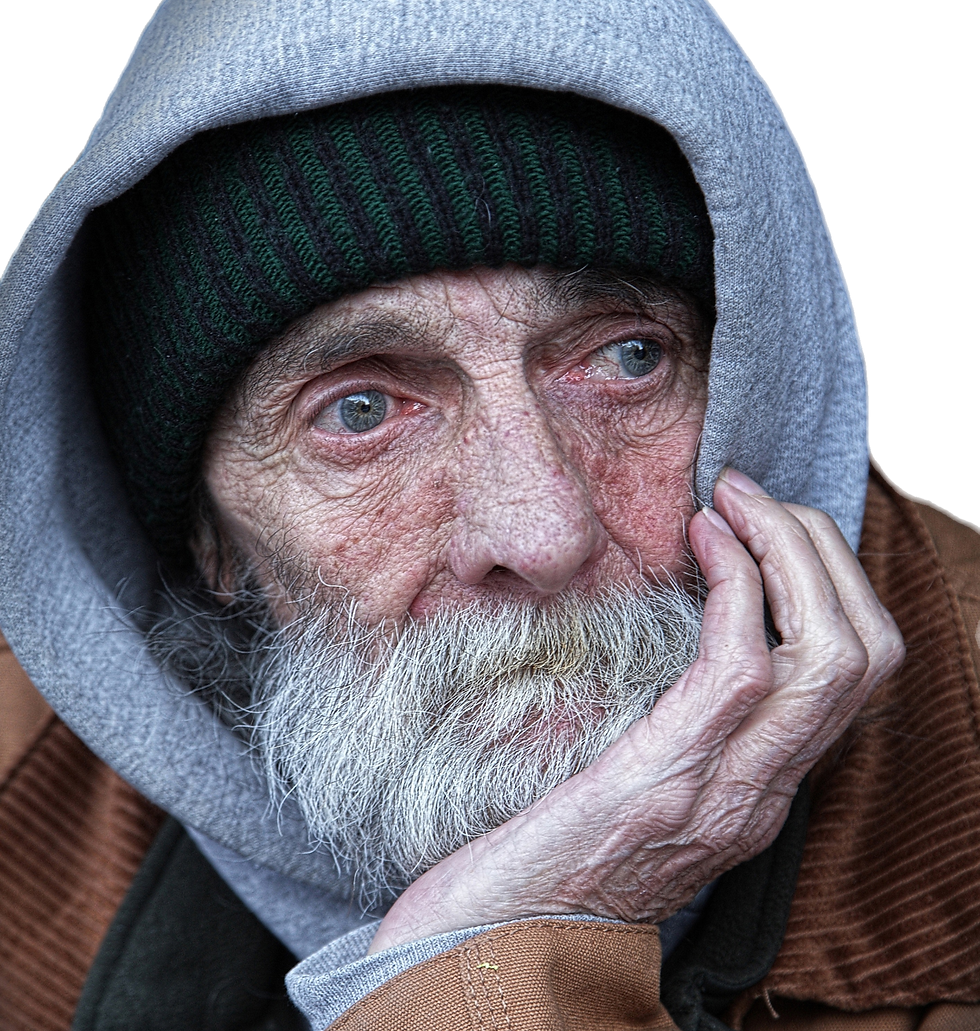Mental Health in the Elderly: Know the Signs
- Zara Ayanna Salmon
- Aug 26, 2020
- 3 min read

As with our physical bodies, it is important to keep up with your mental health. This is especially true as one enters their twilight years. Whether it be grey hairs, wrinkles, or loss of mobility, age is evident in one’s appearance. The same is not true for one’s mental state. Your mother could have lived a life free of any mental ailments but as she enters her eighties, she may experience mental illness for the first time in her life. And for someone who has had a lifetime of mental health crisis growing older may exasperate any existing conditions. Understanding the signs of mental illness can be difficult because the symptoms can correlate with old age. Below we’ve listed the top mental illnesses in older adults and the signs one should look for.
Depression
Depression is a common mental illness that can be apparent in all age groups regardless of socio-economic status and various other identity factors. An aging demographic may be even more susceptible to depression because of the many different elements that coincide with aging such as the loss of a loved one or having to adjust to an increasing loss in mobility. Certain signs that you can look out for to recognize whether your loved one is depressed or not is:
Persistent sadness
Feelings of hopelessness
Decreased energy/increasing fatigue
Difficulty concentrating
Change in diet: eating less or eating more
Suicidal ideation
Anxiety Disorder
Anxiety disorder is described as excessive fear or worrying. While it is important to understand that everyone has nerves, persistent or recurring nervousness is not normal especially if it interferes with your daily life. There are many different things that can induce anxiety and it is all dependent on the person. Some people experience social anxiety while others may feel anxious if they are alone. Here are some symptoms you can look out for if you are taking care of someone who could have anxiety disorder:
Chest pains
Headaches
Excessive sweating
Excessive fear of mundane activities
Trembling
Muscle Tension
Nausea
Bipolar Disorder
When bipolar shows up for the first time after age 60, it can be quite severe," says Carrie Bearden, Ph.D., associate professor of psychology and behavioral sciences at UCLA. Bipolar tends to show up in older adults through excessive agitation and irritability. This can easily be confused with depression in seniors which can make it even harder to diagnose. If you are concerned that you or a love one may be bipolar, make sure you take note of these signs:
Excessive agitation
Irritability over “small” things
Distractibility
Confusion
Hyperactivity
Psychosis
Eating Disorder
While it may seem that the older generation has everything figured out, that is not always the case. As we age, our body ages which can lead to low self-esteem and body dysmorphia. We may not be able to control the amount of wrinkles forming over our once smooth face or the extra fat that incurs due to a slower metabolism, but we can always control what we eat. An eating disorder may begin with a simple plan to lose a little weight but ultimately spiral out of control into anorexia or bulimia. In older adults, it’s important to be weary of these signs.
Changes in eating habits i.e. eating extremely small portions or using the bathroom after every meal
Hair loss
Dental issues
Increased sensitivity to the cold
Weight Fluctuations
Excessive use of laxatives
A lack of desire to eat socially, prefers to eat alone
If you notice any of these signs in a loved one, it is important to check with their doctor opposed to diagnosing them on the spot. As the body begins to deteriorate with old age, a lot will change for anyone. This is why it is vital to have a good relationship with a medical professional who is consistently moderating your loved one so that if any of these common mental disorders were to arise, they would be able to get it under control before it gets to be severe.
Sources: caringpeopleinc.com & who.int




Comments